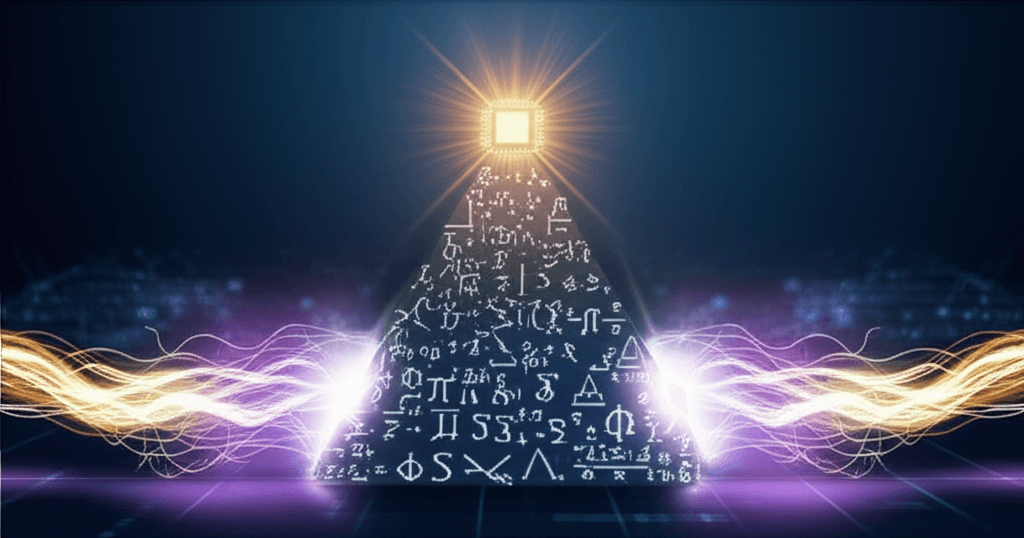AI Conquers Math's Everest: Google, OpenAI Win Olympiad Gold
AI breaks new ground, achieving gold-medal math reasoning at the IMO, a feat once thought exclusive to human brilliance.
July 22, 2025

The world of artificial intelligence is witnessing a fierce and escalating rivalry between its most prominent players, with the latest battleground being the formidable arena of advanced mathematics. Google and OpenAI have both claimed a monumental achievement: their AI systems have independently reached the gold-medal standard at the International Mathematical Olympiad (IMO), the most prestigious and challenging mathematics competition for pre-university students globally. This development marks a significant leap in AI's reasoning capabilities, moving beyond rote calculation and into the realm of creative and abstract problem-solving, a domain long considered exclusive to human intellect.
The International Mathematical Olympiad, held annually since 1959, presents six exceptionally difficult problems from the fields of algebra, combinatorics, geometry, and number theory.[1][2] Success requires not just deep knowledge but also ingenuity and the ability to construct rigorous, multi-page proofs. For years, the IMO has been viewed as a grand challenge for AI, a benchmark to test whether a system could achieve human-expert level mathematical reasoning.[3][2] Until recently, AI models struggled with the sustained creative thinking required. The recent announcements from Google and OpenAI, however, signal a dramatic shift. Both companies reported that their respective AI models solved five out of the six problems in the 2025 competition, earning a score of 35 out of a possible 42 points.[1][3][4] This score firmly places them within the threshold for a gold medal, a feat achieved by only a small fraction of the brilliant human contestants.[1]
Google DeepMind's breakthrough was achieved by an advanced version of its Gemini model, enhanced with a feature called Deep Think.[1][5] This system operated end-to-end in natural language, directly processing the official problem descriptions and generating human-readable proofs, all within the strict 4.5-hour time limit of the competition.[1][6] This represents a significant evolution from Google's previous efforts. In 2024, a combination of their AlphaProof and AlphaGeometry 2 systems reached a silver-medal standard by solving four of the six problems.[1][2] However, that achievement required experts to first translate the problems into a formal, machine-readable language and involved days of computation.[1][4] The latest Gemini model's ability to reason directly from natural language and within the competition's time constraints showcases a much more flexible and intuitive form of AI reasoning. The IMO President, Professor Dr. Gregor Dolinar, confirmed Google DeepMind's achievement, stating their solutions were "astonishing in many respects" and found by graders to be "clear, precise and most of them easy to follow."[1][6]
Similarly, OpenAI announced that an experimental, general-purpose reasoning large language model also achieved a gold medal-level score of 35 by solving five of the six IMO problems.[3][7][8] OpenAI's researchers emphasized that their model was not narrowly tailored for the IMO. Instead, its success stems from new advances in general-purpose reinforcement learning and scaling the model's computation time during the test.[9][10][11] This approach highlights a focus on creating more generalized AI systems that can transfer problem-solving strategies to novel and complex domains. OpenAI's evaluation was conducted under the same strict rules as human participants, with solutions graded by a panel of three former IMO medalists who reached a unanimous consensus on the scores.[3][10][11] While not officially graded by the IMO organizers in the same manner as Google's submission, the result still stands as a powerful demonstration of the model's advanced mathematical capabilities.[5][4]
These parallel achievements have profound implications for the future of AI and mathematics. The ability of these systems to generate creative, watertight arguments at the level of elite human mathematicians suggests that AI is on the cusp of becoming an invaluable tool for researchers.[11] Scientists and mathematicians may soon use these models to help tackle unsolved problems at the frontiers of their fields.[12] The rapid progress is startling; just a few years ago, AI benchmarks were focused on grade-school level math problems, and now they are conquering the pinnacle of pre-collegiate mathematics.[10][13] This rapid acceleration points towards a future where AI can augment human intelligence, helping to discover new insights and advance human knowledge. While neither Google nor OpenAI plans to immediately release these specific high-level math models to the public, the underlying technologies will undoubtedly shape the next generation of AI systems, potentially transforming research, education, and engineering.[1][10][7] The battle for Math Olympiad glory is more than just a competition; it is a clear indicator of the accelerating pace of AI development and a preview of a future where human-AI collaboration could unlock unprecedented scientific breakthroughs.